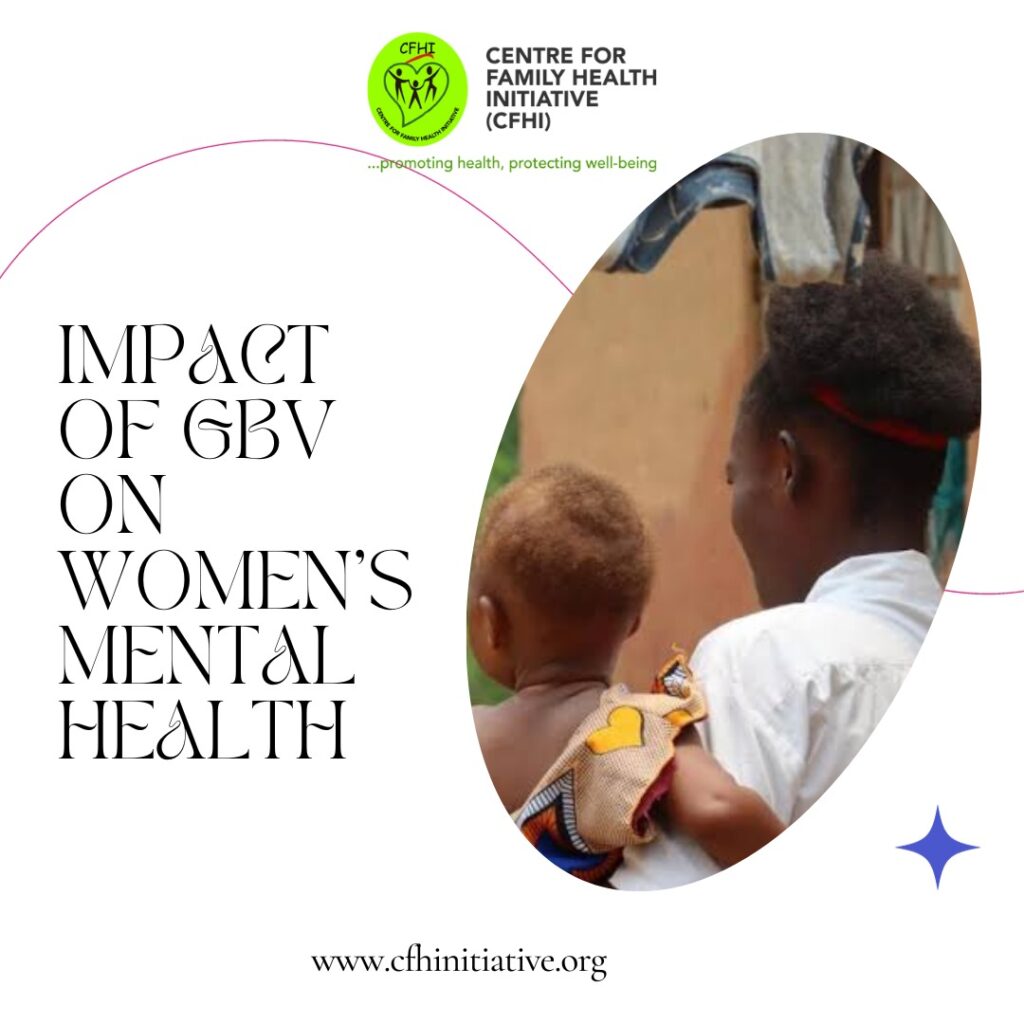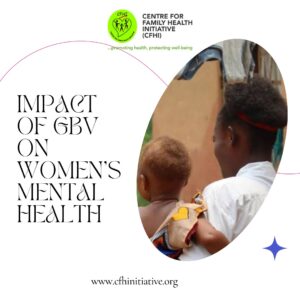Impact of GBV on Women’s Mental Healt
The Nigerian federal law, Violence Against Persons (Prohibition) Act VAAP, defines domestic violence as any act perpetrated on any person in a domestic relationship where such action causes harm or may cause imminent harm to the safety, health, or well-being of any person.
Gender-based violence (GBV) has far-reaching and devastating effects on women’s mental health. It encompasses a range of harmful behaviours directed at individuals based on their gender. It includes physical, sexual, emotional, and economic abuse. Survivors of GBV often face significant psychological challenges as a result of their experiences.
Post-Traumatic Stress Disorder (PTSD): Many survivors of GBV develop symptoms of PTSD. This can include flashbacks, intrusive thoughts, nightmares, and severe anxiety. The trauma from the experience can be so overwhelming that it disrupts daily life and functioning.
Depression and Anxiety Disorders: The chronic stress and fear associated with GBV can lead to the development of depression and various anxiety disorders. Women may experience feelings of hopelessness, sadness, and an overwhelming sense of dread. They may also struggle with feelings of worthlessness or guilt.
Dissociation and Depersonalization: Some survivors may experience a disconnection from their own bodies or a feeling of being detached from reality. This can be a coping method for the intense mental and bodily suffering brought on by the violence.
Self-Harm and Suicidal Thoughts: The emotional pain and distress caused by GBV can lead to self-destructive behaviours, including self-harm and suicidal ideation.
Substance Abuse: Many survivors turn to drugs or alcohol as a way to cope with the trauma they’ve experienced. Substance abuse can provide temporary relief from emotional pain, but it often leads to further physical and mental health issues.
Impact on Parenting and Relationships: For survivors who are parents, the trauma from GBV can affect their ability to parent effectively. It may also strain relationships with their children and other family members.
Negative Impact on Work and Education: The mental health consequences of GBV can spill over into various aspects of a survivor’s life, including their ability to perform at work or in educational settings. Financial instability and a reduced quality of life may result from this.
Re-victimization: Survivors of GBV may be at higher risk of experiencing further violence or abuse, as the psychological effects of trauma can make it more challenging to recognize and avoid potentially dangerous situations.
Recognising the severe impact of GBV on women’s mental health and providing adequate assistance and resources are critical. Organizations like the World Health Organisation (WHO) and UN Women emphasize the necessity of giving survivors complete treatment, which includes mental health services, therapy, and access to safe spaces.
Raising awareness, challenging societal norms, and enacting legislation to prevent and respond to GBV are critical to lowering the occurrence of GBV against women and minimizing its destructive impact on their mental health.
REFERENCE:
1. Kim, Stefani. “Phonak Launches NaíDa Marvel (M).” The Hearing Review (Online), vol., no., 2020, p. n/a.
2. UN Women https://www.unwomen.org/
3. Committee on the Elimination of Discrimination against Women (CEDAW) https://www.ohchr.org/en/hrbodies/cedaw/pages/cedawindex.aspx
#SpeakWednesday


